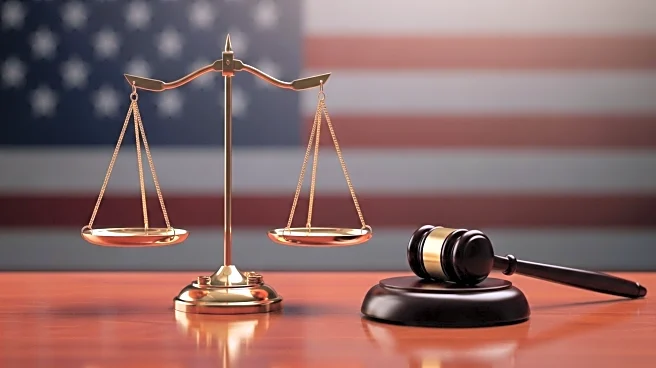What is the story about?
What's Happening?
President Donald Trump attempted to deploy the U.S. military into Portland, Oregon, and other cities, despite a judge's order and opposition from state governors. The state of Oregon filed a lawsuit against the White House after Trump ordered 200 National Guard troops to Portland, citing threats from Antifa and domestic terrorists. U.S. District Judge Karin Immergut, appointed by Trump, ruled against the deployment, stating there was no legal basis for federalized National Guard members in Oregon. Despite this, Pentagon chief Pete Hegseth ordered 300 California National Guard troops to Oregon, prompting California to join Oregon's lawsuit. An emergency hearing resulted in a two-week freeze on National Guard deployments to Oregon, extended to all 50 states. Trump later ordered the Texas National Guard to various locations, including Portland and Chicago, under Title 10, section 12406, which was previously ruled a violation of the Posse Comitatus Act.
Why It's Important?
The deployment of National Guard troops by President Trump raises significant constitutional questions regarding federalism and the separation of military and civilian powers. The legal challenges highlight the tension between state and federal authority, particularly concerning the use of military forces in domestic law enforcement. The situation underscores the potential for a constitutional crisis, as states like Illinois and Oregon resist federal intervention without their consent. The actions taken by the Trump administration could set precedents for future executive decisions on military deployment within U.S. borders, impacting the balance of power between state and federal governments.
What's Next?
The legal battles are expected to continue as states challenge the federal government's authority to deploy National Guard troops without state consent. The outcome of these cases could redefine the limits of executive power and the application of the Posse Comitatus Act. Political leaders and civil society groups may increase pressure on the administration to adhere to constitutional norms. The situation may also prompt legislative action to clarify the legal framework governing military involvement in domestic affairs.
Beyond the Headlines
The controversy over National Guard deployments reflects broader concerns about the militarization of domestic policy and the potential erosion of civil liberties. The use of military forces in civilian contexts raises ethical questions about the appropriate role of the military in a democratic society. The situation may also influence public perception of the military and its relationship with civilian governance, potentially affecting recruitment and public trust in military institutions.

















